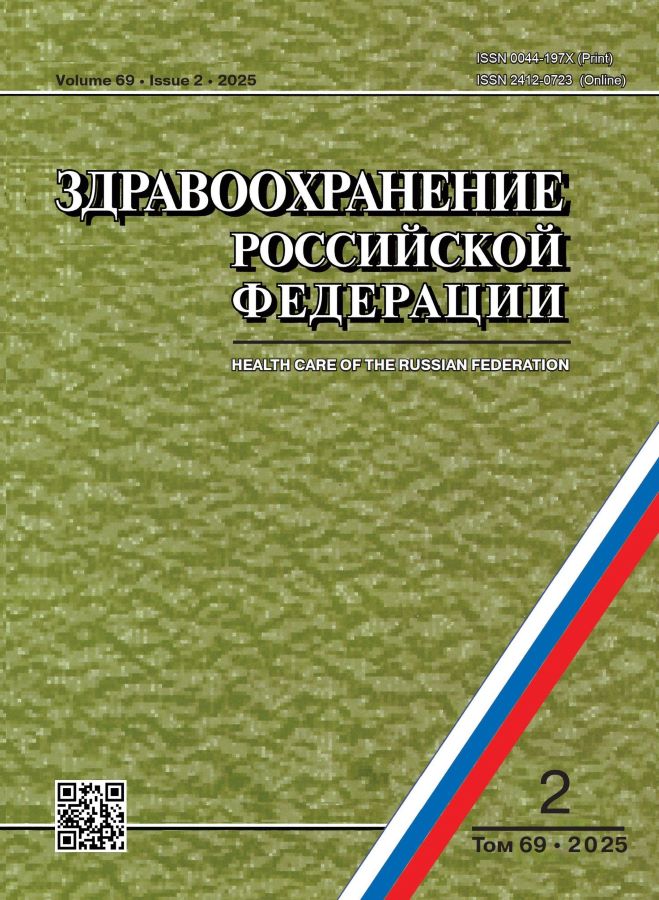Otto von Bismarck or Karl Marx: financing medical guarantees for the population by contributions from salaries or by turnover tax?
- Authors: Ragozin A.V.1, Grishin V.V.1, Dudnik A.I.1
-
Affiliations:
- Financial University under the Government of the Russian Federation
- Issue: Vol 69, No 2 (2025)
- Pages: 175-181
- Section: HISTORY OF HEALTH CARE AND MEDICINE
- Submitted: 26.05.2025
- URL: https://rjonco.com/0044-197X/article/view/680576
- DOI: https://doi.org/10.47470/0044-197X-2025-69-2-175-181
- EDN: https://elibrary.ru/vkwvfr
- ID: 680576
Cite item
Abstract
The article examines the circumstances that allowed the Soviet Union rapid creating the world’s first universal health coverage (UHC) system in the 1920s and 1930s, ahead of most developed OECD countries. At the same time, while OECD countries created their UHC systems in the context of rapid economic growth during the so-called “golden age of capitalism” (1945–1975), the achievement of UHC in the USSR occurred in extremely unfavourable economic conditions. Analyzing the success of healthcare in the USSR, the authors conclude the refusal to finance it from taxation of the wage fund (the so-called Bismarck system) to be in favour of the innovative Soviet tax on the turnover of enterprises, the authors found the source of ideas for which in the works of K. Marx and W. Rathenau, played an important role. The authors see prospects for using the Soviet tax innovation in the 21st century.Contribution of the authors: Ragozin A.V. — research concept, writing the text, compilation of the list of literature; Grishin V.V. — statistical data processing; Dudnik A.I. — editing. All authors are responsible for the integrity of all parts of the manuscript and approval of the manuscript final version.Acknowledgment. The article was prepared based on the results of research carried out at the expense of budgetary funds under a state assignment for the Financial University.Conflict of interest. The authors declare no conflict of interest.Received: December 3, 2024 / Accepted: February 19, 2025 / Published: April 30, 2025
About the authors
Andrey V. Ragozin
Financial University under the Government of the Russian Federation
Email: avragozin@fa.ru
Vladimir V. Grishin
Financial University under the Government of the Russian Federation
Email: vvgrishin@fa.ru
Anna I. Dudnik
Financial University under the Government of the Russian Federation
Email: aidudnik@fa.ru
References
- Busse R., Blümel M., Knieps F., Bärnighausen T. Statutory health insurance in Germany: a health system shaped by 135 years of solidarity, self-governance, and competition. Lancet. 2017; 390(10097): 882–97. https://doi.org/10.1016/S0140-6736(17)31280-1
- OECD. Artificial Intelligence and the Labour Market. Paris; 2023.
- Shishkin S., Sheiman I. The hard way from the Beveridge to the Bismarck model of health finance: Expectations and reality in Russia. Front. Public Health. 2023; 11: 1104209. https://doi.org/10.3389/fpubh.2023.1104209
- Маркс К., Энгельс Ф. Капитал. Том 4: Теории прибавочной стоимости. М.; 1962.
- Бухарин Н.И., Преображенский Е.А. Азбука коммунизма: популярное объяснение программы Российской коммунистической партии большевиков. Екатеринбург; 1919.
- Ратенау В. Новое хозяйство. М.; 1923.
- Содномова С.К., Леонтьева Ю.В., Майбуров И.А., Киреенко А.П. Исторические аспекты эффективного использования налоговых инструментов для целей индустриализации экономики СССР. Вестник УрФУ. Серия: Экономика и управление. 2019; 18(2): 291–313. https://doi.org/10.15826/vestnik.2019.18.2.015 https://elibrary.ru/pafhyf
- Караваева И.В., Мальцев В.А. Приоритеты бюджетной политики в период индустриальных преобразований 1920–1930-х годов. Финансы и кредит. 2008; (15): 67–75. https://elibrary.ru/hvfnjj
- Бачурин А.В. Прибыль и налог с оборота в СССР. М.; 1955.
- Малафеев А.Н. История ценообразования в СССР: 1917–1963. М.: Мысль; 1964.
- Майзенберг Л. Ценообразование в народном хозяйстве СССР. М.; 1953.
- Ровинский Н.Н. Государственный бюджет СССР. М.: Госфиниздат; 1944.
- King M.A. The Cash Flow Corporate Income Tax. Cambridge: National Bureau of Economic Research; 1986.
- Adisah-Atta I. Financing health care in Ghana: Are Ghanaians willing to pay higher taxes for better health care? Findings from Afrobarometer. Soc. Sci. 2017; 6(3): 90. https://doi.org/10.3390/socsci6030090
- The World Bank. Health Financing in Ghana. Geneva; 2012.
- Sajadi H.S., Ehsani-Chimeh E., Majdzadeh R. Universal health coverage in Iran: Where we stand and how we can move forward. Med. J. Islam. Repub. Iran. 2019; 33: 9. https://doi.org/10.34171/mjiri.33.9
- WHO. Tax-based financing for health systems: options and experiences. Geneva; 2004.
- Bird R., Gendron P.P. Is VAT the best way to impose a general consumption tax in developing countries? Bull. Int. Taxat. 2006; 60(7): 287–96.
- Feige E.L. Starting Over: The Automated Payment Transaction Tax. Madison: University of Wisconsin; 2001.
- Feige E.L. Taxation for the 21st century: the automated payment transaction (APT) tax. Economic Policy. 2000; 15(31): 474–511. https://doi.org/10.1111/1468-0327.00067
- Cintra M. Bank transactions: pathway to the single tax ideal A modern tax technology; the Brazilian experience with a bank transactions tax (1993–2007). Available at: https://mpra.ub.uni-muenchen.de/16710/1/MPRA_paper_16710.pdf
Supplementary files









